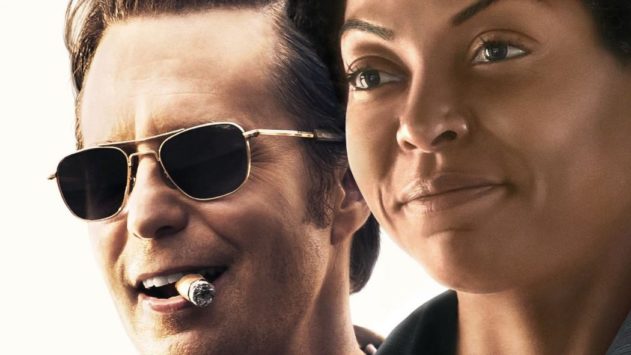I am weary of this story. And if I’m tired of it, I can only imagine how audience members of color might feel.
Stop me if you’ve heard this one before: A racist white person, cartoonishly evil, meets a black person and, for the first time, really gets to know them. This personal experience with difference opens the white person’s eyes, and they evolve into something resembling a decent human being. As we read or watch or listen, we are prompted to gasp in horror at ignorant prejudice, laugh when the antagonist is made the butt of jokes, clap and cheer when the character of color fires off a snappy one-liner, and shed a tear when the racist finally, thrillingly, inevitably sees non-white people in all their humanity. Cue the curtain, and the Kleenex.
You would be forgiven if you think I’m describing Green Book, or any of innumerable other pictures that trace the exact same narrative arc, sometimes even the same story beats. In this case, though, I’m speaking of The Best of Enemies, Robin Bissell’s new film starring Taraji P. Henson as African-American activist Ann Atwater and Hollywood’s new go-to guy for good-old-boy-conservative roles, Sam Rockwell, who plays Ku Klux Klan Cyclops C.P. Ellis.
If you’ve seen the trailer, you know the plot, and if you know the plot, you can guess where it goes. The setting: Durham, North Carolina, 1971. When the local all-black school is seriously damaged in a fire and the black citizenry demand their children be allowed to enroll in the white school, the already-fractured town threatens to explode. Desperate to maintain the status quo, local authorities call in Bill Riddick (Babou Ceesay), who organizes a two-week, integrated, community-wide series of town meetings. The goal is to draft proposals and vote on them in order to honor democracy and the town’s true will. Naturally, Atwater and Ellis are named co-chairs. Arguments, insults, mob-like intimidation, and life lessons ensue. Along the way, Atwater learns more about Ellis’s life, and in the wake of her act of kindness on his behalf, Ellis starts to change.
In my theater, the crowd cackled at Atwater’s every dig, groaned whenever Ellis or his KKK buddies did something horrible, clapped or muttered their approval each time goodness seems to be winning. It was all very rousing, and yet it felt too easy, as if the film were constructed solely to make us feel good about how evolved we all are, how unlike Ellis’s Neanderthal friends, how much we empathize with the local white businessman who employs only black people. As if it were meant to put us at ease. In one scene, a KKK member sexually assaults a woman by grabbing her genitals, and we are suitably disgusted. At least we’re not that guy, right? Except that nearly 63 million of us voted for a man who bragged about doing the exact same thing to multiple women.
The Best of Enemies would have you believe that C.P. Ellis was really like us all along. The uncomfortable truth is that 63 million of us are really like him.
And herein lies the film’s major problem.
Look, The Best of Enemies is competently told. It hits the (too-familiar, too-easy) story beats on time. Henson, Rockwell, and their castmates do good work, although, despite their efforts, the roles never really feel as inhabited as we might have hoped. And dammit, it does feel good to boo a monster, to cheer an underdog, and to pump our fists when the monster turns human.
But I am not interested in humanizing monsters, and I remain unsure why so many movies seem so invested in it. I guess because there are very fine people on both sides, right?
I know this film is based on a true story, so the plot arc was pre-determined, yet I can’t help feeling disappointed in how the story plays out. The trailer, even the title, indicates the movie will trace an epic struggle between two people stuck on opposite sides of America’s racial chasm, but as The Best of Enemies develops, the film invests its most powerful scenes in redeeming Ellis. All of Ann Atwater’s humanity focuses on finding and nurturing the spark of decency in Ellis. After saving him or some member of his family, Atwater comes right out and tells Ellis—twice!—that this is just what she does. Her character ceases to exist on her own merits and becomes subsumed in his arc.
I am weary of this story. And if I’m tired of it, I can only imagine how audience members of color might feel.
All in all, The Best of Enemies is another anti-racist feel-good movie that whooshes right past nuance in its desperation to centralize white redemption. Surely there are other ways to tell this story. It would be nice if more filmmakers explored them.
Brett Riley is the Pushcart-nominated author of The Subtle Dance of Impulse and Light (Ink Brush Press) and the feature-length screenplay Candy’s First Kiss, which won or placed in five contests. His short fiction has appeared in journals such as Solstice, Folio, The Wisconsin Review, Red Rock Review, The Evansville Review, and many others. Email him at officialbrettriley@gmail.com, or follow him on Twitter and Instagram: @brettwrites.
Other Links:

